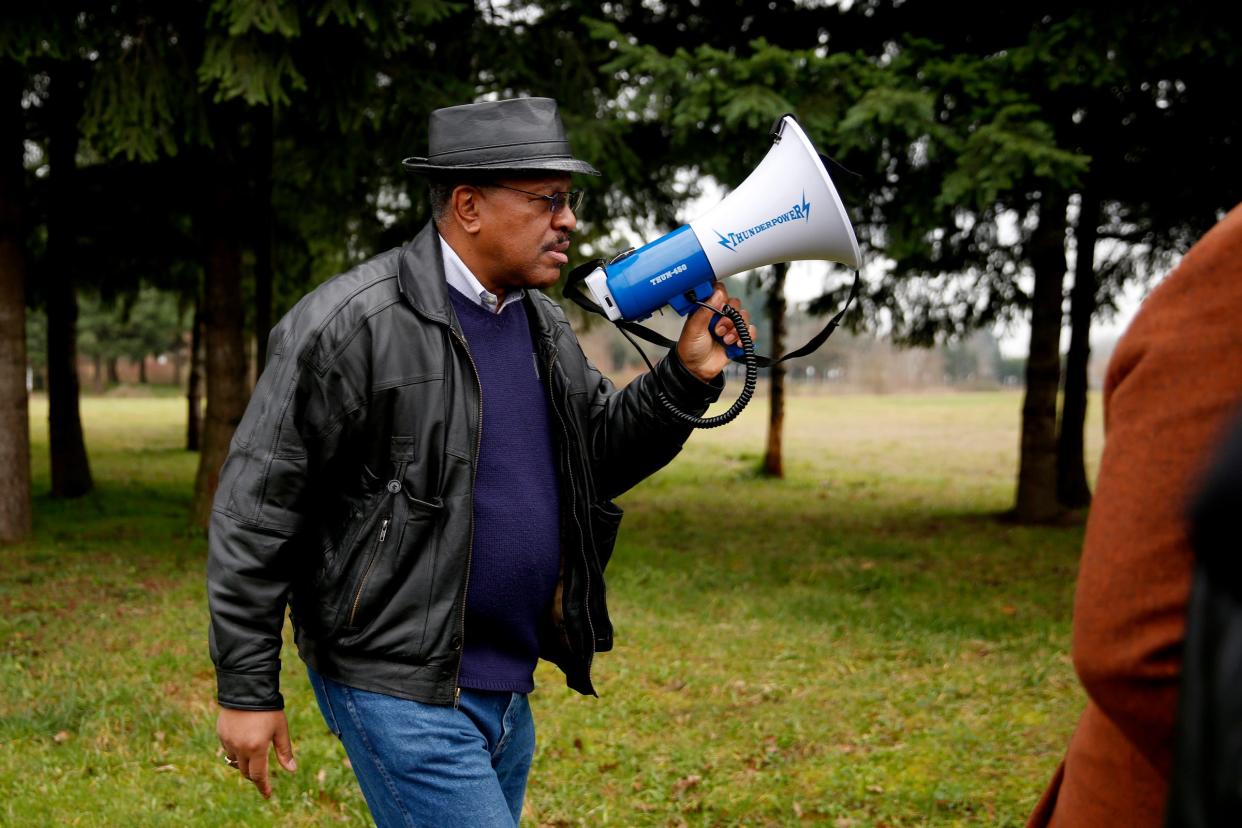New Oregon police standards would discipline officers for bias, sex assaults

In an effort to better hold Oregon law enforcement officers accountable when they are the ones who commit egregious or criminal acts, the Commission on Law Enforcement Standards of Conduct and Discipline has proposed a set of standards for law enforcement agencies statewide.
The proposed standards are the result of state House Bill 2930, which passed in 2021. Among the proposals are disciplinary measures for officers who use excessive force, commit sexual assault or target a person of color or someone from a protected class.
What didn't make the proposed standards?
But some of the behaviors considered didn't make the final draft. Among them was repercussions for officers who join hate groups.
John Teague, chief of the Keizer Police Department and a member of the commission, said he has “no doubt” this guideline and others will be brought up again.
“The legislation is open-ended. This can move as wide and as deeply as the commission feels it should,” Teague said. “I don't know at the moment where it’s going to go.”
The 13-member commission is made up of members from throughout the state, including police chiefs, a sheriff, a defense attorney representing police and lawyers representing police unions. Public hearings for the commission's proposed standards are being held through mid-September. The rules go into effect Oct. 1 and public opinion will be considered until then.
Former NAACP chapter leader Benny Williams 'disappointed'
Benny Williams, one of the commission members and a former president of the Salem-Keizer chapter of the NAACP, said he was “disappointed” that the standard on hate groups was not in the draft.
During the Black Lives Matter protests in 2020, Williams said, there were instances in which officers were seen being more aggressive toward peaceful protesters than they were toward “agitators.”
A video of a Salem Police officer speaking with armed men standing outside downtown businesses about what they could do to avoid violating curfew went viral. Critics at the time said the police were showing favoritism by giving them tips on how to avoid arrest while being quicker to tear gas and arrest those associated with the George Floyd protests.
“We’re doing the best we can in avoiding a situation like a George Floyd or frankly to lessen the occurrence of overuse of force by law enforcement,” Williams said.
Williams said while the group is a good mix, it makes it difficult at times when it comes to discussion.
“It was both difficult and necessary at any given moment to remind all of the members why we were there,” Williams said. “I say it aloud on several occasions, like ‘Wait a minute.’ Discussion tends to be trying to protect law enforcement, and that's not the basis of what this commission is all about.”
What the proposed standards say
Williams was disturbed the commission chose a less forceful direction for accountability for law enforcement and that some standards like the one for participation in a hate group could not get a majority support.
The proposed standards do include:
Termination for use of unjustified or deadly force that results in death or serious injury.
Termination or a mitigated penalty for use of unjustified or excessive physical force that results in death or serious injury. Mitigating penalties could include suspension without pay, salary reduction, demotion or a written reprimand.
Termination or a mitigated penalty for sexual assault.
Termination or a mitigated penalty for intentionally targeting a protected class, such as targeting someone based on their race or gender.
Teague said he believes the impact of the new standards on the community will be minimal because of the way policing is handled in Oregon.
“If it is obvious, it will probably be at a very local level … but I don't think we'll see a real change," Teague said. "Generally speaking, policing in Oregon, and frankly, in the Northwest in general, is rather self-disciplined.”
Williams disagrees.
He thinks these guidelines will be a “wake-up call” for officers to be more accountable.
Williams called on law enforcement to also focus on diversity efforts to match the areas they serve.
"When you look at Salem right now, at this very moment in time, it is more diverse in the last 10 years than it's been in its history,” Williams said. “Yet many institutions here do not reflect that diversity. Law enforcement has to do that.”
How to comment
To send comments, email ORLawEnfCommission@doj.state.or.us.
Hearings will be both in person and virtual from 1 p.m. to 2 p.m. on Aug. 30, Sept. 1, Sept. 7 and Sept. 14. The public is allowed to attend but cannot speak unless they sign up to testify.
The locations of the hearings are:
Aug. 30: 150 NW Pacific Park Lane, Suite 100, Bend
Sept. 1: 100 SW Market St., Portland
Sept. 7: 700 SE Emigrant, Suite 100, Pendleton
Sept. 14: 1555 SE McAndrews Road, Suite 200, Medford
Zoom meeting information and the sign up form can be found on the department's website. The last date for public comment is Sept. 16 at 5 p.m.
Dejania Oliver is the breaking news reporter for the Statesman Journal. Contact her at DAOliver@salem.gannett.com or follow on Twitter @DejaniaO.
This article originally appeared on Salem Statesman Journal: HB 2930: Police discipline plan for excessive force outlined

